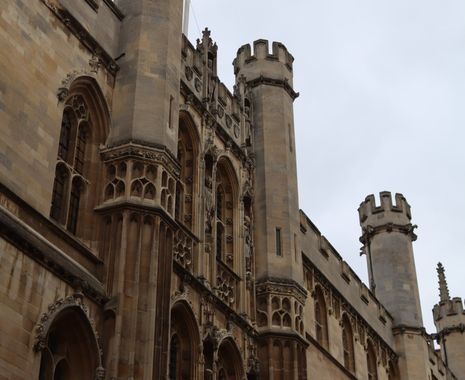Cambridge spends over £9M on academic journal costs
Cambridge has spent more than any other UK university on academic journal costs

The University of Cambridge has spent more than most UK universities on academic journal costs over the past four financial years, according to Freedom of Information requests.
Between 2019/20 and 2022/23, the University paid £12.6M to seven major commercial publishers: Elsevier, Wiley, Taylor & Francis, Springer, Sage, Oxford University Press (OUP), and Cambridge University Press (CUP). This was the highest expenditure among 21 UK universities that provided data.
The largest share of Cambridge’s spending went to Elsevier (£3.86M), followed closely by its own publishing subsidiary, CUP, at £3.85M.
The figure for CUP also includes included non-publishing related co-investments, due to its status as a constituent part of the University. Of the total sum of £3.85M, £854,808 was spent on journal subscriptions. This means the University spent around £9.5M on academic journal subscriptions.
Cambridge’s spending was significantly higher than that of Oxford (£1.77M) and remained above Leeds (£8.99M) and Manchester (£8.6M), the next highest-spending institutions.
Despite the London School of Economics (LSE) being the highest-ranked university in recent rankings, it recorded the twentieth-highest expenditure at £1,215,946.
Unlike some other universities in the dataset, Cambridge’s figures include non-journal-related payments to these publishers. However, its journal expenditure remains substantial.
CUP acts as a non-school institution, and is governed by a syndicate of 18 senior members of the University of Cambridge.
Elsevier has previously faced criticism for its high subscription costs, with institutions such as the University of California and MIT cutting ties over pricing disputes.
This comes at a time of financial strain for the University. In October, Cambridge’s Board of Scrutiny projected a £53M deficit for 2023/24, citing a “lack of budgetary control”.
That said, the University’s journal-related expenditure declined in 2023, the most recent recorded year, to £2.08M from £4.15M the previous year.
The high costs of academic publishing have been a growing point of contention within the sector. Some major publishers have recorded profit margins of up to 40%, prompting criticism from some groups of academics who have argued they are “bleeding universities dry”.
In 2020, over 2,500 UK university staff called for an investigation into the pricing of academic e-books, describing the situation as a “scandal.”
In response, the push for open-access publishing has gained traction. Initiatives such as the Open Library of Humanities, founded in 2015, have sought to provide “diamond open access” journals, which eliminate costs for both readers and authors.
 News / Right-wing billionaire Peter Thiel gives ‘antichrist’ lecture in Cambridge6 February 2026
News / Right-wing billionaire Peter Thiel gives ‘antichrist’ lecture in Cambridge6 February 2026 News / John’s duped into £10m overspend6 February 2026
News / John’s duped into £10m overspend6 February 2026 News / Epstein contacted Cambridge academics about research funding6 February 2026
News / Epstein contacted Cambridge academics about research funding6 February 2026 News / Lucy Cav students go on rent strike over hot water issues6 February 2026
News / Lucy Cav students go on rent strike over hot water issues6 February 2026 News / Corpus FemSoc no longer named after man6 February 2026
News / Corpus FemSoc no longer named after man6 February 2026










